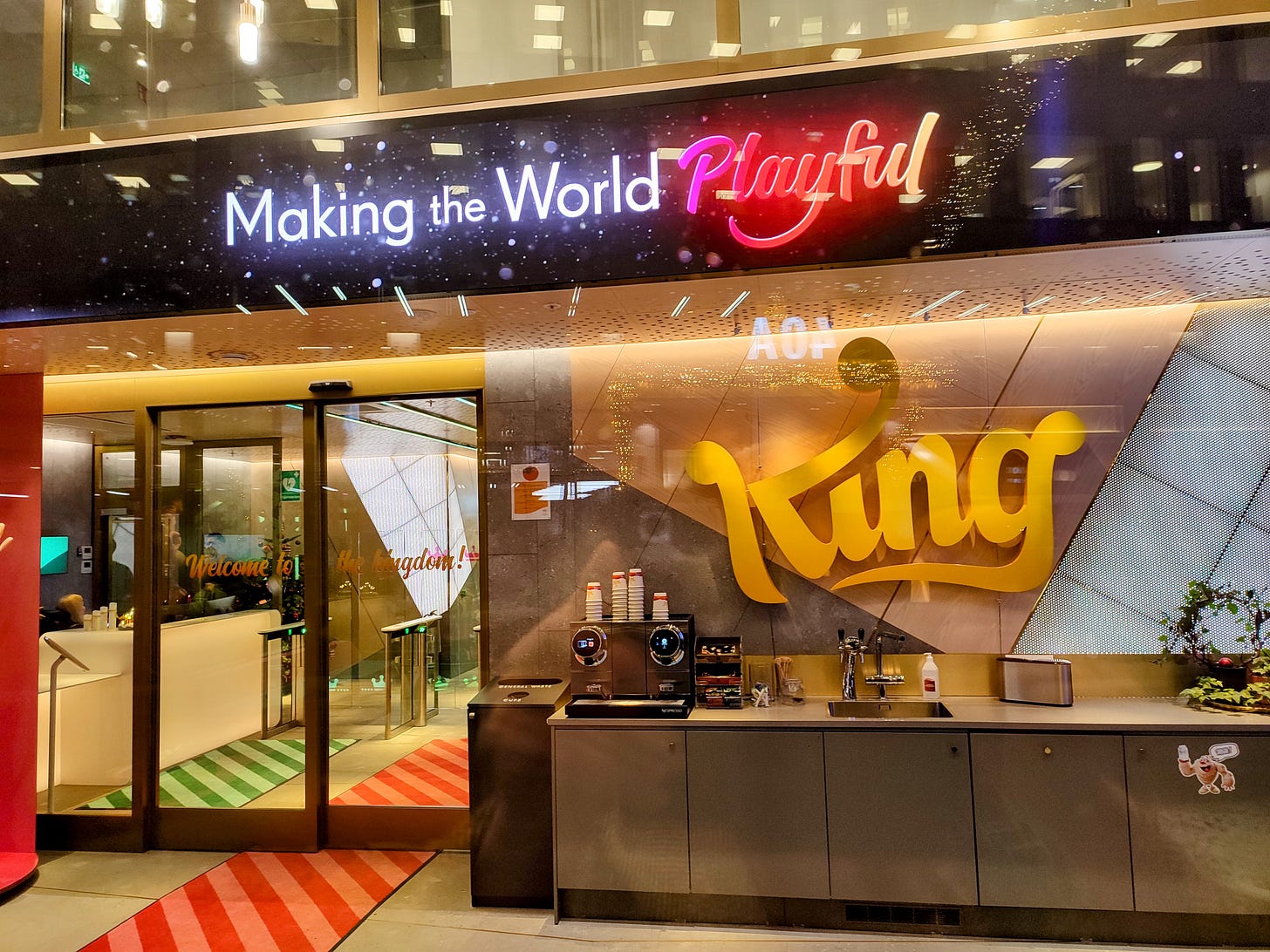We Used to Have Fun
The Great Humbling S5E3
I sat down to write a post about how I didn’t have a story to go with this episode of The Great Humbling, and then found that I did have a story. So you can head straight over to LibSyn, YouTube, Apple Podcasts, Spotify or wherever you do your listening – or read on, as I try to explain the history of capitalism and industrial modernity with the help of the KLF!
There’s a story I heard someone tell last week, a parent talking about their relationship with a grown-up child and how difficult it can be to have conversations about the things you really want to talk about.
‘And then I realised… we used to have fun together! So I’m thinking, that’s the place I need to start.’
It’s one of those stories that echoes outwards, as you recognise the same pattern on different scales. I’ve spent a lot of this month telling stories about the modern world and its paradoxes, what it is about the way that we’ve been living around here lately that calls for regrowing a living culture. And maybe it’s as simple as that: in a living culture, we have fun together, and somewhere along the way we forgot how to live like that.
When I say this kind of thing, I can hear a voice that whispers: Is he serious? Doesn’t he know what life was like for our ancestors – and how lucky we are to be alive now?
But if you’ve been reading or listening to me for a while, then you know that I’m never advocating for trying to go back to anything. I’m just leaning on what I learned from Ivan Illich, to recognise the strangeness of the ways we are living now by looking into ‘the mirror of the past’.
And here’s the part I’m looking at just now: so far as I can see, until the era of industrial modernity, there had never been a way of life in which humans were bound to choose the more efficient way of doing something over the more enjoyable way of doing it, the more profitable way of doing something over the more meaningful way of doing it.
This first came into focus for me years ago, reading
’s reflections on Norse boatbuilding and the intricate designs that cover them. Now, Tony is a designer of wooden boats himself, so he was looking at these thousand-year-old craft with admiration for their functionality and also with a craftsman’s eye for the sheer work that had gone into making them beautiful. Hundreds of hours of work, over and above what it would have taken to make an equally serviceable boat. And, as he pointed out, these people brought the same approach to everything they made: ‘boats or helmets, or silver cups, or swords, or even rakes and scythes’.
Once you start looking with these eyes, you recognise that this is what humans have done everywhere, until quite recently.
There’s a story to be told here about the birth of capitalism and the rise of industrial mass production. I’ll tell it in more detail, someday soon – but for today, I only want to note that the distinctive feature of the societies to which this historical process gave rise is that productive activity is mostly governed by a logic that tends to strip it of things like meaning, playfulness and sociability.
Since most of us spend a good deal of our lives engaged in productive activity for money – so as to pay the rent or the mortgage, to buy food from the supermarket and so on – this leaves us well-fed and long-lived, sure, but undernourished when it comes to things like meaning, playfulness and sociability, unless we are fortunate enough to carve out lives that have an unusual shape to them.
In general, what happens is that our need for these things gets sold back to us in the form of consumption, all the things that are filed under ‘leisure’, the annual holiday in the sun, and – perhaps most toxic of all – the promise of retirement, when the lucky among us get a decade or two to travel the world and consume all the experiences it has to offer, before mortality catches up with us.
Many of us know that we can’t go on like this. We might not have a worked-out explanation, but we know in our bones that something is wrong. But like that parent who wanted to start a conversation with their adult child, we struggle to know where to start. And lately I’ve been wondering, what if we started by remembering that we used to have fun together?
These thoughts had all been brewing in the cauldron of the Regrowing a Living Culture series that I’ve been teaching this month. What I wasn’t expecting was to arrive at the recording of the latest episode of The Great Humbling and have them catalysed by Ed’s reading of John Higgs’s book The KLF: Chaos, Magic & the Band Who Burned a Million Pounds.
The other ingredients included a conversation in the comments of last week’s post about John Berger, an unexpected email about my words appearing in the unphotographable darkness of an exhibition in Leeds, and stumbling upon a conversation between two listeners who had very different reactions to our previous episode.
But if you want to know more about any of that, you’ll have to listen to the show, which you can find on LibSyn, YouTube, Apple Podcasts, Spotify and all the other places where podcasts are available.
Finally, I never want to lose track of my luck at having carved out a strange-shaped life that allows me – for now, at least – to make a living in ways that are woven through with meaning, playfulness and sociability. These days, a significant part of that is the support that I get from those of you who have made the leap to becoming paid subscribers to this Substack. So thank you, all of you, for this and the many other kinds of support that allow me to follow these threads and weave them together with those of many others.
DH



Nodding my head and up and down through this one. You've tapped an enormous vein: the potential pleasure and sociability of manual work.
In the trades today there is a constant tension between the need to survive economically and the innate desire to slow down, do real crafting, make beauty and enjoy one's time with others. This is an eight to ten hours a day, five to six days a week question, the very nut of being a tradesperson. And it gets talked about a lot. There seems to be two types of people, those in love with the work and the life, trying to carve out of the "efficiency" mindset the ability to make beauty and fellowship, and others who crave money, who have figured out how to make it by doing things quickly and poorly, and often show up at job sites with the question "keeping busy?"
A couple years ago I was lucky enough to spend months on a high-end remodel where most the crew were committed to their crafts and damn good at them. Such a happy band of renegades in a work environment that was at times effervescent with banter and enthusiasm. Not so beautiful is the reality that only those doing "high-end" work tend get those opportunities. The poor, the immigrants, the less privileged end up on spray crews in toxic hazes whiting out walls for convention centers and such.
Last point: what you seem to hint at here is a politics of desire vs. directive, a deep ocean of motivation that got lost along the way.
I haven’t listened to the podcast yet Dougald but just to add here my favourite quote from the great John Berger, ‘the world is doubled by play’.